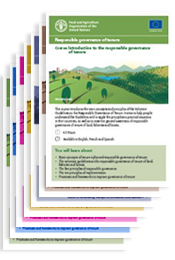Governance of tenure newsletter - April 2024
The “Voluntary Guidelines on the Responsible Governance of Tenure of Land, Fisheries and Forests in the Context of National Food Security” are referred to as the “Voluntary Guidelines" or the VGGT in this newsletter.
- Regional Learning Cycle: Lessons Learned for Investment in Delimitation and Recognition of Indigenous and Afro-descendant Territories in Latin America
- Sierra Leone embraces a Human Rights Based approach to land governance assessment
- Major advancement for livestock farming in the Sahel thanks to the collaboration between Mauritania, Mali, and Senegal
- First UNCCD-FAO supported dialogue on responsible land governance and land degradation neutrality hosted by Kazakhstan
- NEW E-LEARNING COURSE | Geotech4Tenure - Combining geospatial technology and participatory methods for securing tenure rights
- Publications and more
- Events and webinars
- E-Learning
Regional Learning Cycle: Lessons Learned for Investment in Delimitation and Recognition of Indigenous and Afro-descendant Territories in Latin America
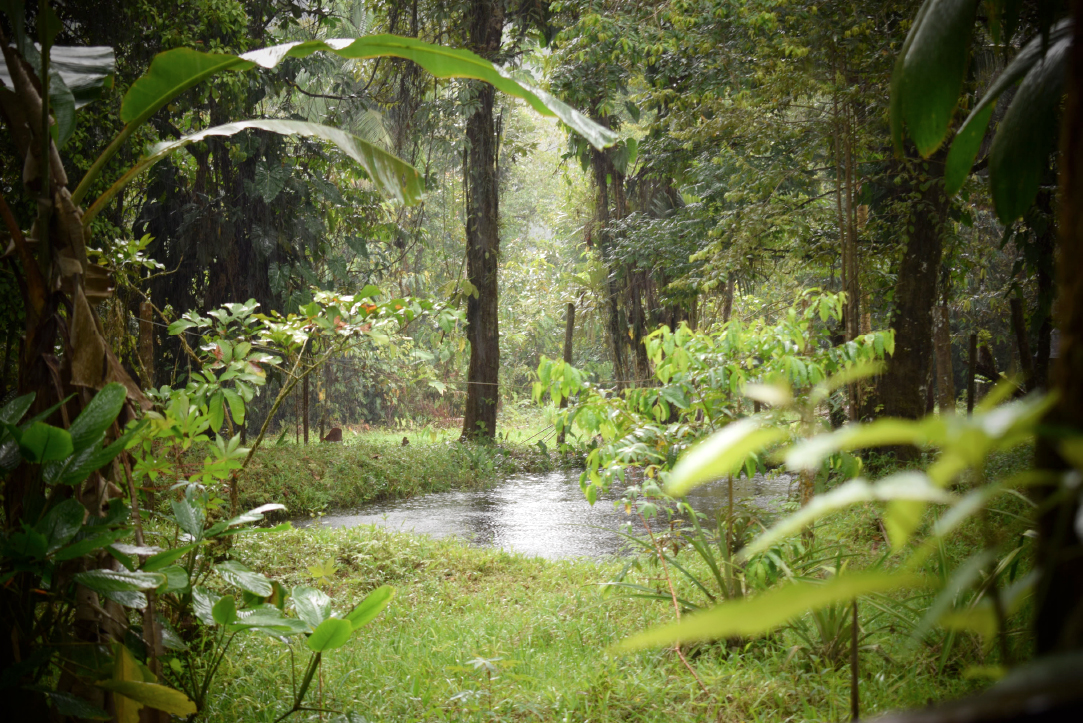
© FAO/Ana Reyes
Between July and September 2023, the FAO Investment Centre and Regional Office for Latin America and the Caribbean, the International Land Coalition - Latin America and the Caribbean and the Tenure Facility co-organized the Regional Learning Cycle: Lessons Learned for Investment in Delimitation and Recognition of Indigenous and Afro-descendant Territories in Latin America.
The purpose of the event was to build collective knowledge around four main areas: i) delimitation of indigenous and Afro-descendant territories in the context of multipurpose cadaster and systematic regularization; ii) technology and information systems to strengthen participatory processes of delimitation and recognition; iii) different forms of recognition and management of territorial rights of Indigenous Peoples and Afro-descendants; and iv) territorial governance for the management of tenure rights to land and natural resources.
An average of 110 participants attended each session (45% from government; 38% from civil society and Indigenous Peoples’ and Afro-descendant organizations; and 17% from bilateral or multilateral cooperation agencies, academia and others).
This initiative included the systematization of 23 case studies from nine countries in the region: Argentina, Colombia, Ecuador, Guatemala, Honduras, Nicaragua, Panama, Peru and the Plurinational State of Bolivia, centered on the learning cycle’s four thematic areas. Five additional case studies from Brazil are in progress and will soon be published on the event site. In addition, a publication on the conclusions and messages derived from the cycle is being prepared, as well as a policy brief specifically aimed at cooperating organizations and international financial institutions with recommendations on investments in this area based on the case studies.
Sierra Leone embraces a Human Rights Based approach to land governance assessment
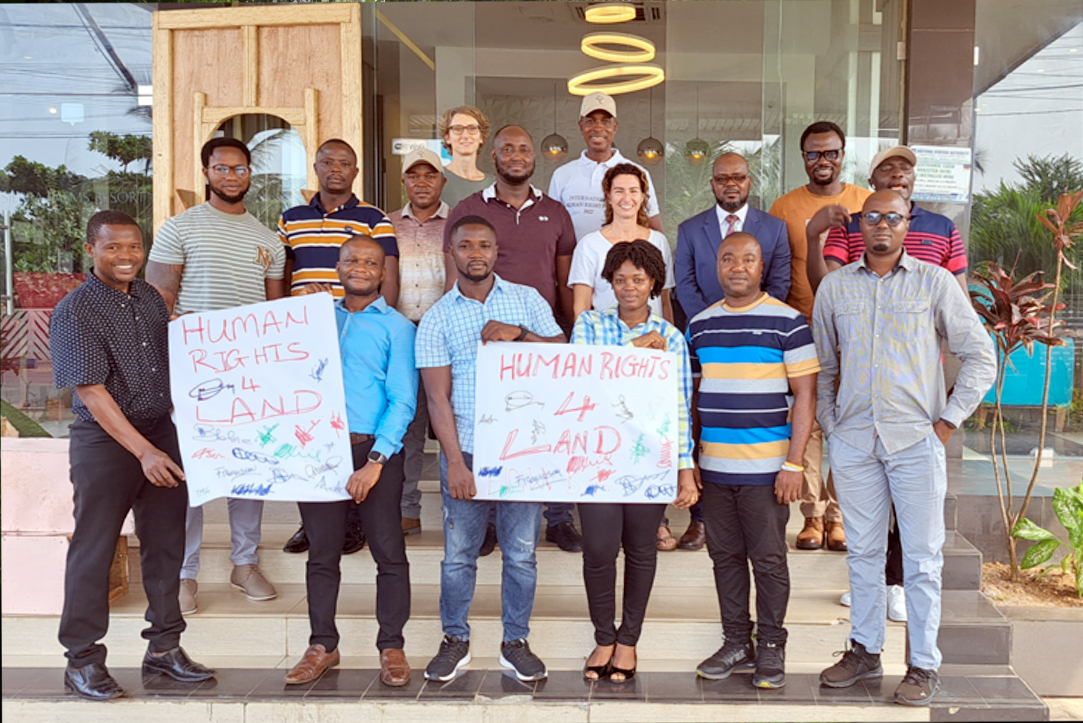
© FAO/Sierra Leone
In Sierra Leone the VGGT principles have guided the development of the National Land Policy and more recently the new Customary Land Act and Land Commission Act. The roadmap defined by the government, and the network of CSOs that together drive the land reform in the country, continues now with a new important step: a human rights-based land governance assessment.
Acknowledging that the VGGT implementation should be consistent with international human rights instruments, and that access to land is a precondition to the realisation of human rights as illustrated in the General Comment No. 26 of the Committee on Economic, Social and Cultural Rights, Sierra Leone will pilot the application of the Human Rights for Land monitoring tool. Developed by TMG Research and the Danish Institute for Human Rights, the tool explains the linkages between land governance indicators and human rights, which enables national Human Rights Institutions, civil society and others to report on land governance deficits to established human rights monitoring and reporting mechanisms.
Between 5 and 7 December 2023, in partnership with TMG Research, the Human Rights Commission of Sierra Leone and Land for Life, FAO supported the first Training of Trainers on the use of the tool in the country. The tool comprises the delivery of a national questionnaire and local questionnaires. While the national questionnaire aims at assessing laws, policies and procedures, the local questionnaire targets rights-holders who can self-report on how they experience the results of policy implementation or lack thereof and their enjoyment of rights.
The tool and approach were well received by the 50 participants from governmental and non-governmental actors gathered in Freetown for the launch of the project Promoting inclusivity for improved local tenure governance. The result of the assessment, expected in June 2024, will define a benchmark, and provide guidance for the implementation of the new laws.
Major advancement for livestock farming in the Sahel thanks to the collaboration between Mauritania, Mali, and Senegal
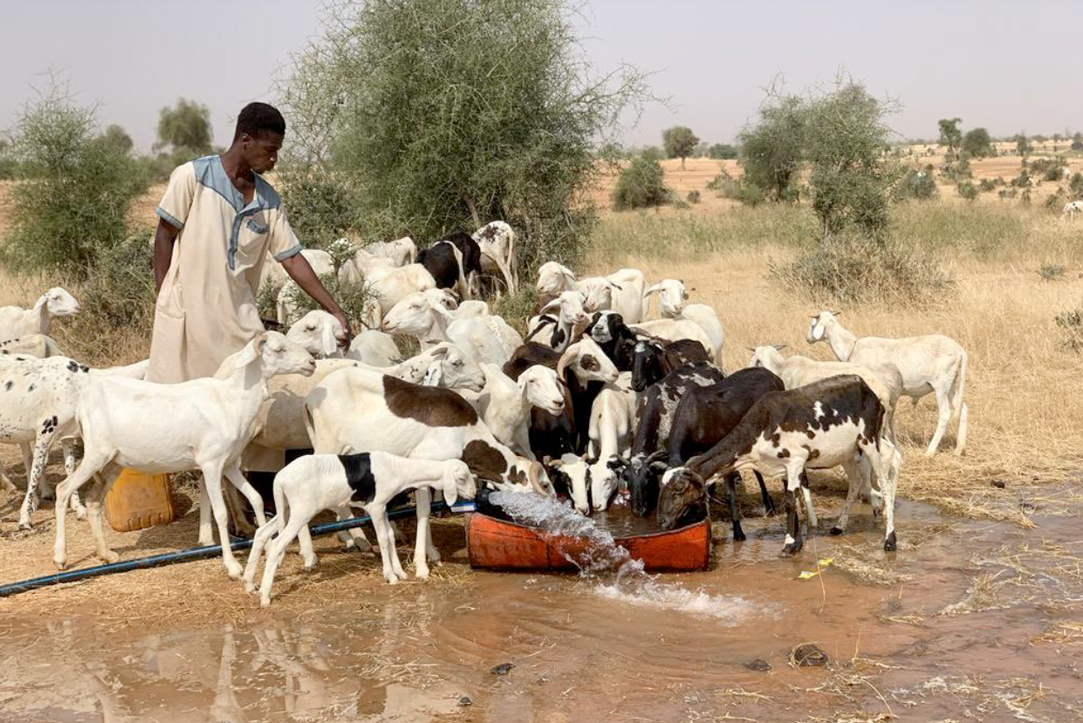
© FAO/Mauritania
In an unprecedented joint effort, these countries are paving the way for secure pastoralism in the Sahel. A recent meeting in Sélibaby in October-November 2023, orchestrated by the Permanent Inter-State Committee for Drought Control in the Sahel (CILSS) in collaboration with FAO and the Mauritanian Government, expanded on the initiative launched in Tambacounda in November 2022.
This initiative is funded by the Spanish Agency for International Cooperation and Development (AECID) and the Federal Ministry of Food and Agriculture of Germany through a memorandum of understanding signed with the Organization for the Development of Arid and Semi-Arid Zones of Mauritania (ODZASAM). Under the leadership of the Minister of Livestock, H'medeit Ould Cheine, the meeting brought together over a hundred participants from Mali, Mauritania, Niger, Senegal, and Burkina Faso. Discussions covered crucial topics, including securing movements and assets, supporting intergovernmental organizations, the necessity for sustainable funding, and the prospects for livestock development in the Sahelian region.
The framework agreement, supported by the Permanent Inter-State Committee for Drought Control in the Sahel (CILSS), was at the center of discussions, emphasizing the shared commitment to promote secure transboundary transhumance. Representatives from administrative authorities, technical services, defense, and security forces, as well as professional livestock organizations, all underscored the importance of this initiative. Regional projects, like the Regional Project to Support Pastoralism in the Sahel (PRAPS phase 2) and the Sustainable Development Project for Pastoral Farms (PDEPS) in Mali and Senegal, played a central role, along with organizations such as the Billital Maroobé Network and the Association for the Promotion of Livestock in the Sahel and Savannah, expressing their ongoing commitment to Sahelian herders.
The recommendations highlight international support for mayors, securing movements, empowering women and youth, regulatory harmonization, and conducting livestock censuses. They promote the exchange of experiences between countries to strengthen cooperation in managing pastoralism-related challenges.
This transboundary cooperation enables Sahelian herders to move towards secure nomadism, contributing to the region's development. Preserving pastoralism in the Sahel holds a promising future for all involved stakeholders.
First UNCCD-FAO supported dialogue on responsible land governance and land degradation neutrality hosted by Kazakhstan
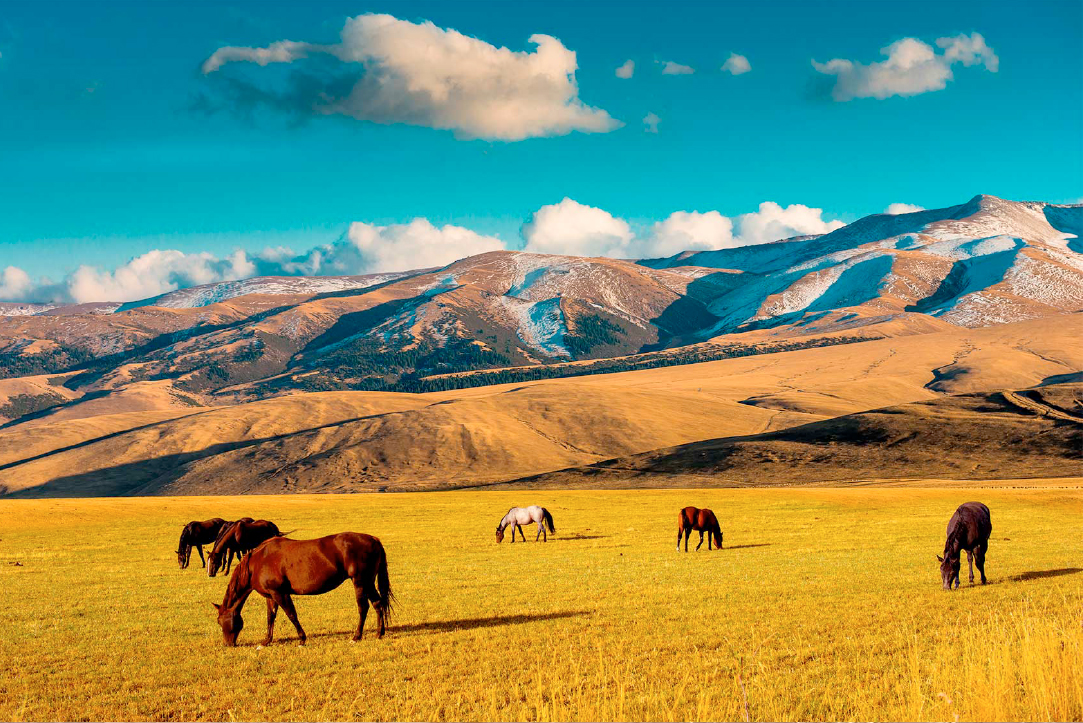
© FAO/Kazakhstan
In response to the call launched by the FAO-UNCCD Joint Initiative to supporting national multi-stakeholder consultations on integrating tenure security into Land Degradation Neutrality (LDN) and land restoration initiatives, Kazakhstan was the first country to host a national consultation in Astana on 6 and 7 December 2023.
With around 50 participants, the consultation enabled stakeholders to share knowledge and experiences on the role of secure tenure in improving natural resource management practices, and led to an increased understanding on the direct linkages between land tenure issues and achievement of LDN. Benefiting from this unique space of reflection, participants built recommendations to better use the principles of the “Voluntary guidelines on the responsible governance of tenure of land, fisheries and forests in the context of national food security” (VGGT) as a leverage to tackle LDN and desertification. As a first outcome, it was recommended to set up a cross-sectoral collaboration mechanism to enhance synergies between authorities responsible for land management and land tenure governance, to ensure that land tenure issues will be considered when designing and implementing policies related to LDN initiatives.
Pasturelands were at the heart of the consultation, as they represent more than 186 million hectares (84% of all farmlands in Kazakhstan), of which 48 million hectares have been degraded in the country over the past hundred years. It was recommended to secure collective rights and to strengthen local level decision mechanisms to improve sustainable management of free-range pastures.
In addition, to solve issues related to shortage of the irrigation systems, overgrazing due to high concentration of livestock, and conflicts between land users, a bottom-up land management approach was recommended, consulting local community-based committees and land user associations to enhance open discussion on sustainable land management and find effective solutions to land degradation at the local level.
A broad range of stakeholders attended the consultation, including government representatives, as the Committee for Land Resources Management of the Ministry of Agriculture (UNCCD focal point of Kazakhstan) and the Ministry of Ecology and Natural Resources, representatives from two universities, along with civil society organizations such as the Association of Farmers of Kazakhstan, and multilateral institutions and development agencies.
After the success of this first consultation, four more countries (Kenya, Mexico, Senegal and Sri Lanka) will hold FAO-UNCCD supported national consultations in 2024.
NEW E-LEARNING COURSE | Geotech4Tenure - Combining geospatial technology and participatory methods for securing tenure rights
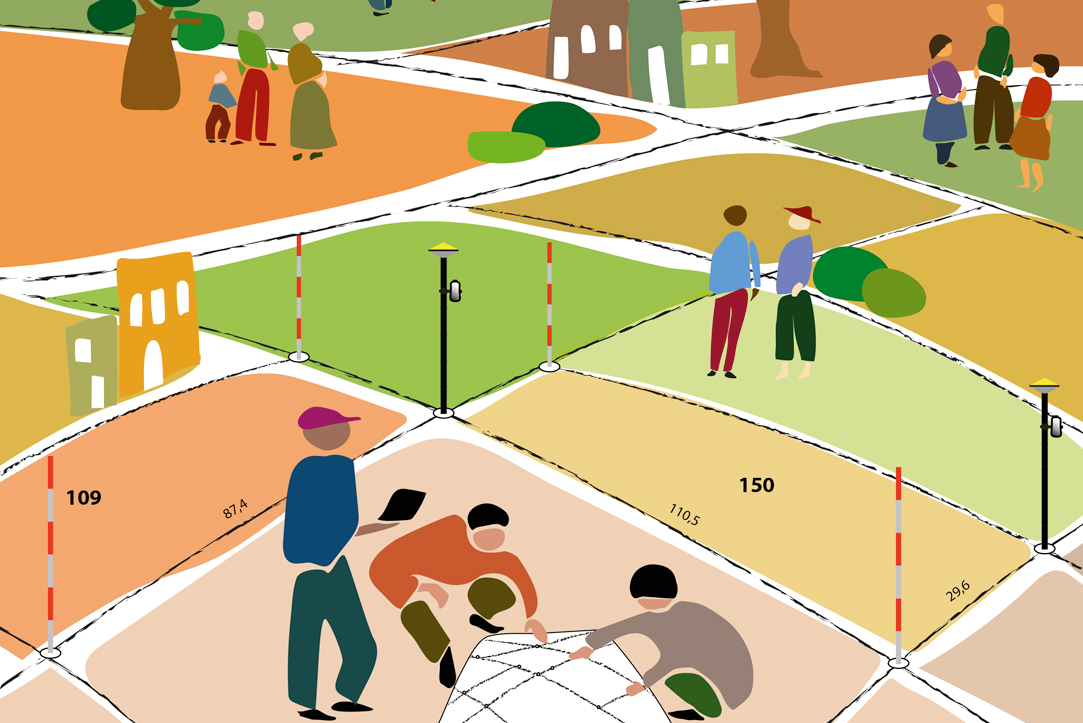
© FAO/GT4T
The FAO Rural Transformation and Gender Equality Division (ESP) and the FAO elearning Academy (PSU), in collaboration with IFAD, have published the joint certified FAO elearning course available free of charge, as a global public good through the FAO elearning Academy on Geotech4Tenure - Combining geospatial technology and participatory methods for securing tenure rights
We really wish to acknowledge everyone’s extra effort, hard work and dedication to make the publication of the series of course possible. In addition to self-paced elearning courses, the FAO elearning Academy offers a number of free international technical webinars, Massive Open Online Courses, mobile learning solutions and other learning initiatives and events.
For more information on GeoTech4Tenure please visit our dedicated pages on the FAO Governance of Tenure Website.
- The Unjust Climate report - Measuring the impacts of climate change on rural poor, women and youth
- Promoting inclusive land governance through multi-stakeholder platforms for successful land policy reforms
- Produire, partager et renforcer l’usage des données: défis et enseignements tirés des observatoires des grandes acquisitions foncières
- Land Administration and Geospatial Information Hard Talk: A Critical Evaluation
- Land administration and Geospatial information hard talk: Reviewing the posted comments
- After a Century of Land Consolidation in Europe – Taking Stock and Looking Forward
15th International LANDNET Workshop | 5 to 7 June, 2024
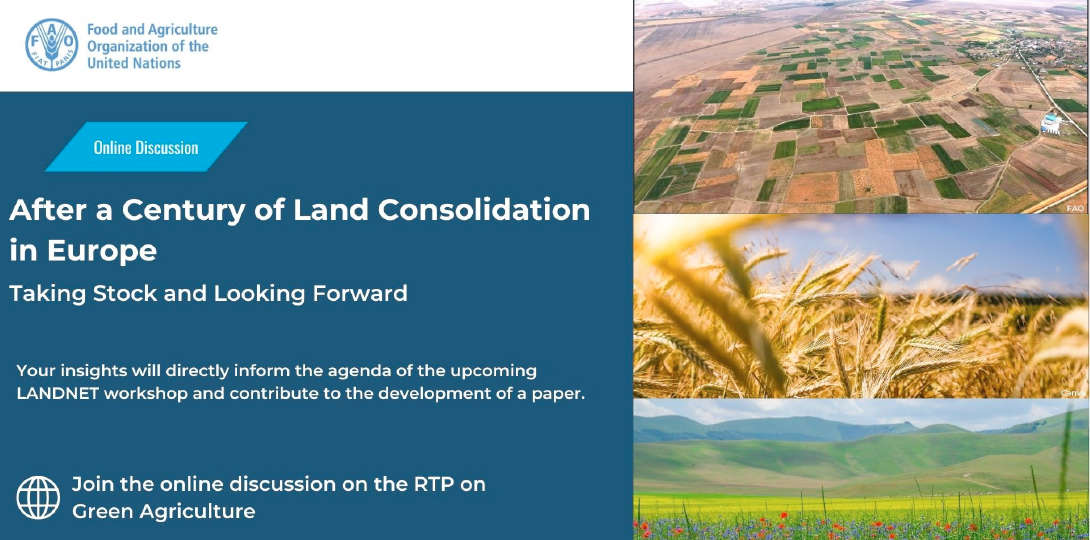
The workshop is organized by FAO REU together with Kadaster and the Province of Zeeland in the Netherlands. Land consolidation started in many countries in Western and Central Europe in the years after the First World War ended in 1918. In 1923, Poland adopted its first Land Consolidation Law, followed by Denmark and the Netherlands in 1924. After a century of experiences with land consolidation in Europe, it is time to commemorate, take stock and based on the lessons learned, discuss the way forward, taking into account today's challenges. This will be the main topic of this year’s workshop.
More information on the Workshop can be found here.
A wide variety of e-learning courses are available on the Responsible Governance of Tenure. Learn about:
- making access to land, fisheries and forests more equitable
- how to protect people's tenure rights
- options to simplify the administration of tenure and make it accessible to all
- how to ensure disputes are resolved before they degenerate into conflict

